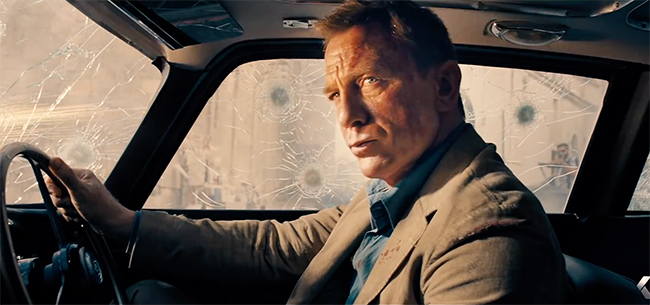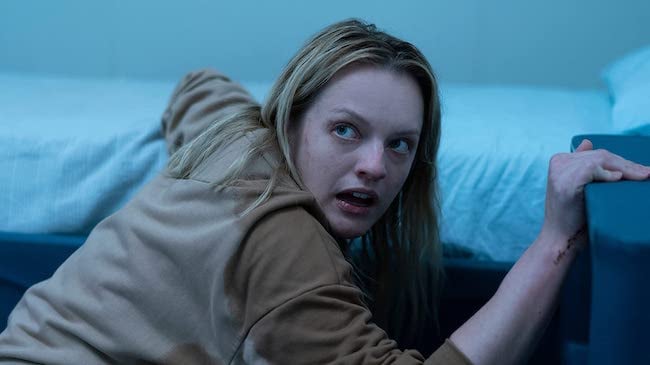
 Disney's Mulan has been delayed, but other releases may go straight to the home via streaming services such as Amazon Prime.
Disney's Mulan has been delayed, but other releases may go straight to the home via streaming services such as Amazon Prime.
Quarantine has forced the cinema industry into a straight to online experiment that may point traditional moviegoing to the exit.
That at least is the fear of cinema exhibitors. While studios are adapting to lockdown by shortening release windows or funnelling their latest releases straight to SVOD, theatre owners are trapped in a cashflow nightmare.
What’s worse for them is that demand for streamed entertainment is at an all-time peak with first run titles being snapped up at premium rates by stay-at-home punters.
Universal's The Invisible Man is one example. After a brief run in cinemas at the end of February it’s now available on Amazon Prime weeks earlier than it would normally have been.
It costs £15 to rent and the equation is a stark one for the industry. What are people willing to spend to see a new movie at home, versus the cost of doing so out of home?
Universal, which is owned by Comcast, will be using the unplanned experiment with The Invisible Man as a way to learn what consumers will tolerate, according to the film’s producer Blumhouse.
“Is the audience going to see it as, instead of going to the theatre and all the costs associated with that, getting there, parking, popcorn, a babysitter if you have kids. … Are they going to say, 'Wow, this is a real bargain compared to that?’," Blumhouse CEO Jason Blum told Forbes. "Or are they going to say: ‘What a rip-off. Netflix is $12 a month. I could watch a hundred movies.' No one knows the answer to that."

Daniel Craig's last outing as 007, No Time To Die, is having its release pushed back rather than going straight to streaming. Image credit: Universal
It might never be the same again
Other studios have delayed their blockbuster releases rather than dropping them online. MGM pushed No Time to Die to November, Paramount delayed A Quiet Place Part II, Warners rescheduled Wonder Woman 1984 for August and Disney postponed Mulan and Black Widow.
Arguably, Covid-19 is exacerbating the fault lines already in play. Those embarked on or leading the transition to digital distribution and OTT video services will float while exposing those lagging behind.
The industry may hope to rebound from the crisis once it subsides but the impact will have been so severe that few think it will ever be the same.
Sony Pictures chairman Tom Rothman finds an upside for exhibitors. He says the eventual end of the pandemic will unleash pent-up demand for entertainment outside the home.
"There will be a great surge of emotional appreciation for collective experiences," Rothman told Forbes. "That's who we are, as human beings, and that's who we have always been since telling stories around the fire in prehistoric times, and I think it's primal. I think it's going to remind people how much they love what they've missed."
Studios are a long way from pulling the rug from under the feet of cinemas. Universal still has Minions: The Rise of Gru pegged for a summer release in cinemas; Christopher Nolan’s latest time-conundrum Tenet for Warners is due to land mid-July.

The Invisible Man only had a brief run at the cinema before being released on Amazon Prime
It's all about the bottom line
But if cinemas go out of business at scale and if subscription prices for online platforms aren’t to rise dramatically, then studios simply won’t begin to make their money back on $100-200 million outlays for production of superhero movies or even jukebox musical Trolls World Tour made by Dreamworks for Universal at a cost of $90 million.
Disney will banking on banking billions in return plus franchise spin-offs for James Cameron’s Avatar sequels due to release in 2021 but can expect only a fraction of that return if it debuts online.
Even the way Hollywood promotes itself is under scrutiny. What is the exact marketing value of glitzy parties at film festivals and premiers if the product still yields a decent return at the virtual box office – with far fewer dollars outlaid?
Even Downhill, the American remake of black comedy Force Majeure, which died on theatrical release, is at number 17 on iTunes priced £7.95.
We’re not there yet. We, the jury, will vote with our feedback over the coming months. People still want value, as evidenced by the rising up the VOD charts of Oscar-winning film 1917 the week after the end of its 90-day window and therefore available as part of standard subscription packages.
The launch of Quibi next week in the US and later in April in Europe is another interesting gamble to throw into the mix. Filmmakers and stars, including Doug Liman, Ridley Scott, Idris Elba, Liam Hemsworth and Steven Spielberg have created content for the platform which is designed to be watched on your smartphone and nowhere else.
No show is longer than 10 minutes and all of its content is being made and streamed in two versions so that when you shift from landscape to portrait mode the viewing playback will be seamless.
Devised and founded by Hollywood mogul and one-time Disney chairman Jeffrey Katzenberg, the question is whether he does have his finger on the button: Is the mobile phone the new cinema?
Tags: Business


Comments